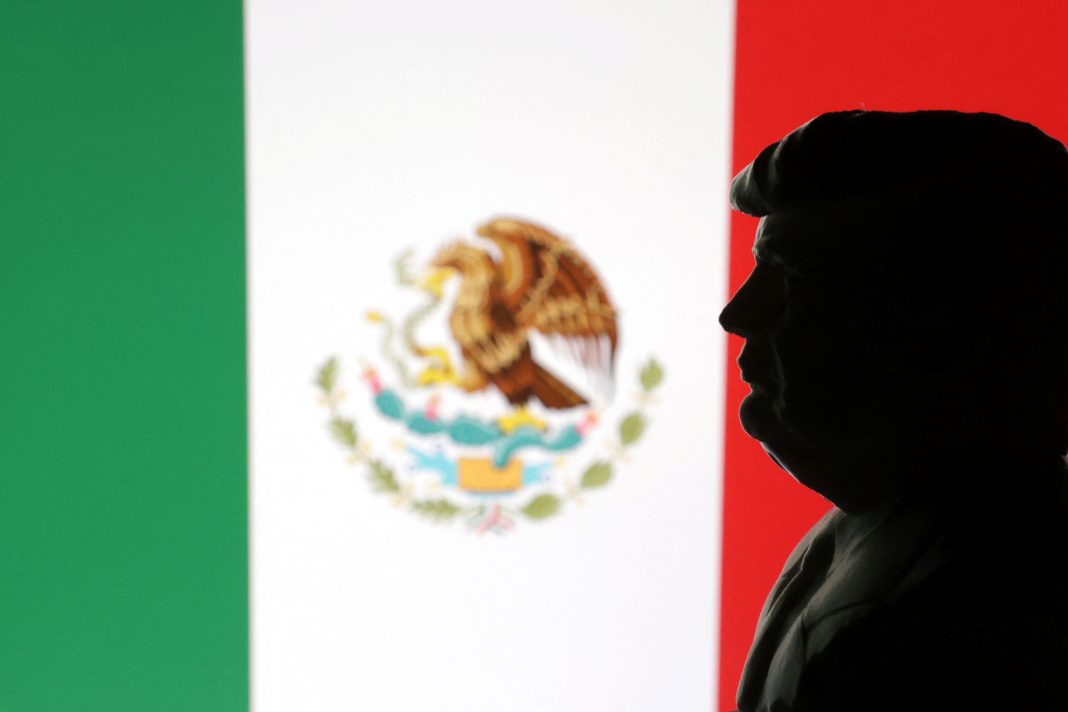The U.S. government, under the Trump administration, is putting strong pressure on Mexico to take action against politicians suspected of working with drug cartels. These demands are aimed at having Mexico investigate and prosecute the politicians and send them to the U.S. if they are charged with crimes.
U.S. Demands Action on Mexican Politicians with Cartel Ties
At least three times, U.S. Secretary of State Marco Rubio and his team have brought up this issue in talks with Mexican officials. The goal is to get President Claudia Sheinbaum’s administration to take legal action against politicians who may be involved in narco-corruption. This includes some members of Sheinbaum’s own political party, Morena. Four people familiar with the meetings shared these details.
U.S. officials have warned Mexico that if no action is taken, the U.S. could place new tariffs on Mexican goods. According to two sources, the idea is to push Mexico to act against powerful people in the government who may be linked to drug cartels.
These talks have not been made public before now. The U.S. believes that drug cartels are gaining more control over parts of the Mexican government. That is one of the reasons given for placing tariffs on Mexico in the past.
Cartel Terror in Mexico: Chilling Graveyard of the Missing Uncovered
If Mexico follows through, it would mean arresting and possibly removing high-level politicians while they are still in power. This would be a huge step and could cause problems for Sheinbaum’s government because some of the people accused are from her party. A member of her security team shared this concern with Reuters.
High-Level Meeting Raises Serious Allegations
The first major discussion on this issue took place on February 27 in Washington. Rubio led the meeting, along with Mexican Foreign Minister Juan Ramon de la Fuente. Many important U.S. officials were there, including U.S. Attorney General Pam Bondi and members from the Departments of Homeland Security, Justice, and Treasury.
From the Mexican side, Attorney General Alejandro Gertz and Security Minister Omar Garcia Harfuch attended. The meeting focused on how Mexico could go after politicians involved with cartels and how the U.S. might support that process.
In response to earlier U.S. pressure, Mexico sent 29 cartel members to the United States in late February. This was the biggest group handed over in many years. During the same talks, both countries discussed working faster to capture or deport key targets wanted by the U.S. Drug Enforcement Administration (DEA) and the FBI.
Two people familiar with the matter said the U.S. also suggested creating a special position—a “fentanyl czar”—to work directly with President Sheinbaum. This person would monitor how Mexico is fighting fentanyl, a powerful drug causing many deaths in the U.S.
U.S. officials also asked Mexico to carry out more checks on people and goods crossing the border into the United States. The goal is to stop illegal drugs, weapons, and cartel members from moving freely between the two countries.
Specific Politicians Allegedly Linked to Cartels
According to Mexico’s constitution, the federal prosecutor’s office is meant to operate independently from the president. However, the U.S. has long believed that Mexican authorities often shield politicians with suspected cartel ties.
Massive 50,000 Kg Chemical Bust at U.S. Border Exposes Chinese Link to Deadly Mexican Drug Cartels
In Mexico, sitting governors and lawmakers are protected from most legal action unless Congress approves charges for serious crimes like drug trafficking. It remains unclear if the U.S. gave Mexico a list of suspects or shared any evidence, but sources say five current Morena party officials and a former senator were mentioned. Among them was Baja California Governor Marina del Pilar Avila, who revealed on May 11 that the U.S. revoked her and her husband’s tourist visas. She called it unfair but did not elaborate. The U.S. State Department has not commented.
Arresting politicians in office is rare in Mexico and seen as crossing a “red line” due to potential political fallout. Historically, officials are usually prosecuted after leaving office. One notable case was the 2020 arrest of former Defense Secretary Salvador Cienfuegos in the U.S., which led to a diplomatic crisis and temporarily halted anti-drug cooperation between the two nations.
Mexican and U.S. authorities have declined to comment on the current discussions. These developments highlight the Trump administration’s hardline stance, using tools like tariffs to pressure Mexico—especially when current officials are involved, raising tensions between the two governments.

